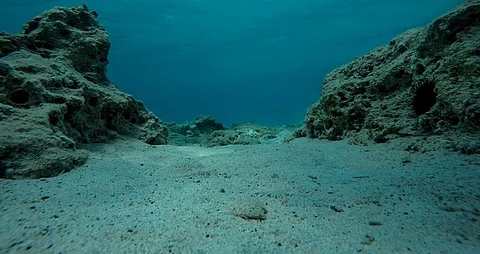

Close to 170 member states and the European Union gathered in Jamaica on March 17, 2025, for a two-week-long negotiation on deep-sea mining, a highly controversial issue.
The negotiations will take place at the 30th Session of the International Seabed Authority (ISA) amid increased pressure from industries.
The ISA is an autonomous international organisation tasked with two key goals: Develop the mining code for deep-sea mining and ensure effective protection of the marine environment from harmful effects that may arise from deep-seabed-related activities.
Deep-sea mining involves extracting mineral deposits from the deep seabed at levels below 200 metres. The idea is to extract minerals like copper, nickel, cobalt, and rare earth elements.
Even as countries negotiate on how to frame the mining code to effectively protect the marine environment, mining companies appear to be in a rush. The Canada-based Metals Company has announced its intention to apply for an exploitation plan of work in June this year.
“We are expecting it to become very clear at the March meeting that the Mining Code will not be adopted any time in the near future. There are over 2,000 textual elements that are still under debate,” Deep Sea Conservation Coalition Policy Officer Emma Wilson said in a statement.
Pro-mining states, she added, are requesting to establish a process for assessing a mining application despite not having a mining code in place.
The draft mining code has several problems in its current form. According to a November 2024 study in Marine Policy, more than 30 major issues in the regulations remain outstanding due to differences in views and lack of information and time to progress negotiations. Of the 30, 13 items are yet to be discussed, 17 face a lack of consensus, and 14 require additional information or inputs to progress further, it added.
“These gaps include fundamental issues, such as lack of agreement on environmental baseline data requirements,” Julian Jackson, Project Director, Ocean Governance at the Pew Charitable Trusts, wrote in a blog.
The other outstanding issues, he explained, are questions such as what constitutes permissible environmental harm, compliance, monitoring and enforcement mechanisms, how to address underwater cultural heritage, insurance and liability requirements.
While the ISA has the mandate to ensure the effective protection of the marine environment from harmful effects that may arise from mining activities, there is debate about the level of harm that might be caused by mining and whether the draft regulations are robust enough to meet that mandate and provide effective control, reads a statement from the European Academies’ Science Advisory Council.
At the 30th meeting, experts expect that the ISA Council members — ISA’s executive body consisting of 36 members, including India — may discuss how to proceed if a deep-sea mining application is submitted later this year before regulations are in place.
Companies are trying to push deep-sea mining, anticipating shortages in the metals required for the energy transition, adding that terrestrial mining alone will not be enough.
The European Academies’ Science Advisory Council has contested this narrative after analysing demand forecasts, the potential for recycling and for technological innovation to change future metal demand.
This was the argument used by the Republic of Nauru, when it issued a letter in 2021 notifying the ISA of the intent of Nauru Ocean Resources Inc’s — a wholly-owned subsidiary of The Metals Company — to apply for an exploitation contract in the Area within two years. This triggered the “two-year rule”, which stipulates that the Council must adopt the rules for exploitation within two years of receiving such a notice.
The European Academies’ Science Advisory Council questioned the urgency with which exploitation of deep-sea minerals is being pursued. “There remains much potential for policy to prioritise a circular economy, support innovation, and minimise continued dependence on the linear economy’s focus on extracting virgin materials from nature,” it added.
Jackson adds approving a mining application now “might cause irreversible damage to the seabed and threaten both the greater marine ecosystem and Earth’s vital systems. Further, there is a still a lack of scientific understanding of the impacts of mining on marine ecosystems.
There are also talks that ISA would face a lawsuit if it rejects mining exploitation applications. Mining proponents have cited the legal doctrine of “legitimate expectations,” drawn from investment law. Investors invoke legitimate expectation in claims against host states before arbitral tribunals, for alleged breaches that impact their investments.
But an analysis showed that this argument holds no water because the investment law precedents are based on relationships between sovereign states and foreign investors but not international organisations, such as the ISA.
So far, ISA has been awarding exploration contracts since 2001. As of January 24, 2025, 30 contracts for exploration are active. India, too, has two exploration contracts in the Indian Ocean and has submitted applications to the ISA for two others in 2024.
Several European countries are sponsors of mining contracts with the ISA and Norway is planning to exploit minerals within its own exclusive economic zone and extended continental shelf.